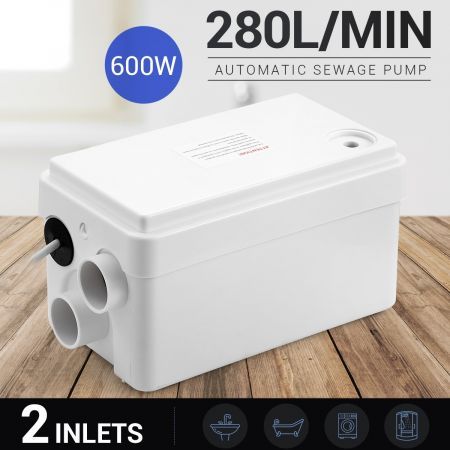

However, unlike ejector pumps, they also include grinding blades (hence the name) designed to grind sewage and other objects into slurry and slush before discharging it. Like ejector pumps, they’re designed to process sewage. What is a sewage grinder pump?Ī sewage grinder pump is like an ejector pump on steroids. Quality examples of pre-assembled systems include the Liberty Pumps P382LE51 and Liberty Pumps P372LE51. Quality examples of standalone sewage ejector pumps include the Zoeller M267 and Liberty Pumps LE51A. Overall, ejector pumps are cheaper than grinder pumps, which will be discussed in detail below. Pre-assembled systems are more expensive than equivalent standalone systems, but last longer due to their design and are also simpler to install. They are sold as standalone models and as pre-assembled simplex or duplex systems (which include sewage basins). They can typically pump sewage at volumes of up to 10,000 gallons per hour (166 gallons per minute) for short distances (under 700 feet) with maximum head pressures of under 30 feet.

They don’t have grinding blades, but make use of quickly-rotating impellers that draw raw sewage vertically up and under pressure from the inlet to the outlet, which then connects to a discharge pipe.Ī sewage ejector pump can typically handle solids up to 2 inches in diameter, and range in power from 3/10 horsepower to 2 horsepower. They’re frequently described as high volume and low pressure solids handling pumps, because they can push sewage quickly but without much pressure from a home into a septic tank or a sewer main that operates by gravity flow. What is a sewage ejector pump?Ī sewage ejector pump is a submersible utility pump capable of processing solids. If you’re in a hurry, the long and short of it is that while both are designed to handle sewage (i.e., urine and feces), grinder pumps can also handle flushed trash, making them a better, though more expensive choice for crucial (e.g., commercial) situations you can typically get away with an ejector for most residential situations. But what’s the difference between both kinds of pumps, and which kind is the better choice for your home or small business? We’ll answer both of these questions and more below. Rooter are available for local Atlanta area communities.We’ve reviewed a number of sewage pumps in the last year, including sewage grinder pumps and sewage ejector pumps. That's why the certified local plumbers at Mr. Rooter have been repairing, replacing and installing ejector pumps for years, and will be able to inspect your pump and fix the issue fast.Ī broken ejector pump can cause many issues, and if it suddenly goes out on a Friday night, you shouldn't have to wait until Monday morning to get help from a professional. If you are dealing with any of the above conditions in your home, it is probably time to call in a professional. You're experiencing frequent sewage backups.No water is being removed from the pit, even thought the ejector is cycling.Strange sounds are coming from the pump.However, repairing a broken ejector pump is important, and so it's a good idea to prepare yourself, so you can recognize the warning signs: Though an experienced plumber can quickly diagnose and troubleshoot problems with ejector pumps, it isn't always so easy for homeowners without plumbing experience.


 0 kommentar(er)
0 kommentar(er)
